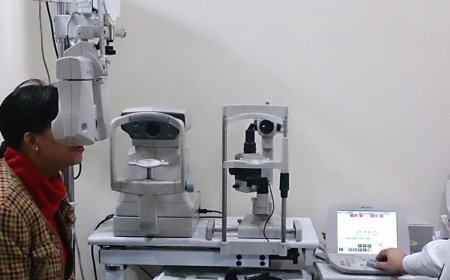Differences Between Comprehensive Car Insurance and Commercial Vehicle Insurance

When it comes to vehicle insurance, it's important to understand the different types of coverage available to ensure you are adequately protected. Two major types of insurance that often cause confusion are commercial vehicle insurance and comprehensive car insurance. While both types of policies aim to provide financial protection against damages and losses, they cater to different needs and vehicle categories. In this article, we'll explore the differences between commercial vehicle insurance and comprehensive car insurance, highlighting their unique features, benefits, and coverage.
-
Understanding Commercial Vehicle Insurance
Commercial vehicle insurance is designed specifically for vehicles used for business purposes. These vehicles can include taxis, trucks, delivery vans, buses, and other types of vehicles that are used for transporting goods or passengers for profit. The primary objective of this insurance is to protect businesses from financial losses arising from accidents, theft, or damage to their vehicles while they are being used for commercial purposes.
One of the key features of commercial vehicle insurance is that it offers coverage for third-party liabilities, which means that if your vehicle causes injury or damage to another person or their property, the insurance will cover the costs. Additionally, this insurance provides coverage for the insured vehicle in case of accidents, fire, theft, and natural calamities. It also offers protection against legal liabilities arising from the use of the vehicle.
Key Features of Commercial Vehicle Insurance:
-
Third-Party Liability Coverage: Covers damages or injuries caused to third parties.
-
Comprehensive Coverage: Includes protection against accidents, theft, fire, and natural disasters.
-
Customisation Options: Businesses can tailor their policies with add-ons like zero depreciation, roadside assistance, and more.
-
Coverage for Multiple Vehicles: Businesses with a fleet of vehicles can opt for a single policy that covers all their vehicles.
-
Understanding Comprehensive Car Insurance
Comprehensive car insurance is primarily designed for private vehicles, offering extensive coverage against a wide range of risks. Unlike commercial vehicle insurance, which is tailored for business vehicles, comprehensive car insurance is meant for personal cars used for non-commercial purposes. It provides protection not only against third-party liabilities but also against damages to your own vehicle, making it a more all-encompassing form of coverage.
This type of insurance covers your vehicle against accidents, theft, natural calamities, and vandalism. Additionally, it offers coverage for third-party liabilities, ensuring that you are protected from any legal or financial consequences arising from accidents involving other parties. One of the main advantages of comprehensive car insurance is the option to add riders or add-ons, such as zero depreciation cover, engine protection, and personal accident cover, which can enhance your policy’s coverage.
Key Features of Comprehensive Car Insurance:
-
Extensive Coverage: Protects against damages to your own vehicle and third-party liabilities.
-
Customisation Options: Offers a range of add-ons like zero depreciation, engine protection, and more.
-
Personal Accident Cover: Provides financial compensation for injuries sustained by the policyholder.
-
Flexibility: Ideal for individuals who want extensive coverage for their personal vehicles.
-
Differences Between Commercial Vehicle Insurance and Comprehensive Car Insurance
While both commercial vehicle insurance and comprehensive car insurance provide protection for vehicles, they differ significantly in terms of coverage, purpose, and target audience. Here's a detailed comparison between the two:
Purpose and Usage:
-
Commercial Vehicle Insurance: This insurance is specifically designed for vehicles used for business purposes. Whether you're operating a fleet of trucks, running a taxi service, or using vans for deliveries, this insurance provides the necessary coverage for vehicles engaged in commercial activities.
-
Comprehensive Car Insurance: This insurance is meant for private vehicles used for personal purposes. It is ideal for individuals who want to protect their personal cars from a wide range of risks, including accidents, theft, and natural disasters.
Coverage:
-
Commercial Vehicle Insurance: Covers third-party liabilities, damages to the insured vehicle, and protection against legal liabilities arising from commercial vehicle usage. It may also offer specialised coverage for different types of commercial vehicles, such as goods-carrying vehicles or passenger-carrying vehicles.
-
Comprehensive Car Insurance: Offers extensive coverage, including protection against damages to your own vehicle and third-party liabilities. It also provides additional coverage options through add-ons, making it a versatile choice for personal vehicle owners.
Policyholders:
-
Commercial Vehicle Insurance: This insurance is typically purchased by businesses or individuals who use their vehicles for commercial purposes. It caters to a wide range of industries, including logistics, transportation, and delivery services.
-
Comprehensive Car Insurance: This insurance is aimed at individuals who own personal vehicles and want comprehensive protection against various risks. It is not suitable for vehicles used for commercial purposes.
Cost:
-
Commercial Vehicle Insurance: Premiums for commercial vehicle insurance are generally higher than those for comprehensive car insurance due to the higher risks associated with commercial usage. The cost of the policy depends on factors such as the type of vehicle, its usage, and the level of coverage required.
-
Comprehensive Car Insurance: The premiums for comprehensive car insurance are relatively lower compared to commercial vehicle insurance, as personal vehicles typically face lower risks than commercial vehicles. The cost of the policy is influenced by factors such as the car's make and model, age, and the policyholder's driving history.
Claims Process:
-
Commercial Vehicle Insurance: The claims process for commercial vehicle insurance may involve more complexities due to the involvement of multiple parties, such as drivers, passengers, and businesses. Additionally, claims for commercial vehicles may require more documentation, such as proof of business usage and details of the goods or passengers being transported.
-
Comprehensive Car Insurance: The claims process for comprehensive car insurance is usually simpler and more straightforward. The policyholder can file a claim for damages to their own vehicle or third-party liabilities by providing the necessary documents, such as the claim form, repair bills, and photographs of the damage.
-
Which One Should You Choose?
The choice between commercial vehicle insurance and comprehensive car insurance depends on the purpose for which the vehicle is used. If you are a business owner or an individual using your vehicle for commercial purposes, commercial vehicle insurance is the right choice. It offers the necessary protection for vehicles involved in business activities, ensuring that your financial interests are safeguarded.
On the other hand, if you own a personal vehicle and want comprehensive coverage against a wide range of risks, comprehensive car insurance is the ideal option. It provides extensive protection for your car and third-party liabilities, giving you peace of mind on the road.
Conclusion
In conclusion, both commercial vehicle insurance and comprehensive car insurance play vital roles in protecting vehicles, but they cater to different needs and purposes. Commercial vehicle insurance is essential for businesses that rely on vehicles for their operations, offering coverage for a wide range of risks associated with commercial usage. On the other hand, comprehensive car insurance provides individuals with extensive protection for their personal vehicles, ensuring that they are covered against accidents, theft, and other unforeseen events.
When choosing between these two types of insurance, it's important to consider the purpose of the vehicle, the risks involved, and the level of coverage required. By understanding the differences between commercial vehicle insurance and comprehensive car insurance, you can make an informed decision that best suits your needs and ensures that your vehicle is adequately protected.
What's Your Reaction?















![Noots Focus Reviews [Truth Exposed 2025]!](https://news.bangboxonline.com/uploads/images/202501/image_430x256_678e3b94881a1.jpg)
![Vivalis Male Enhancement: The Must-Know Ingredients [2025 Update]](https://news.bangboxonline.com/uploads/images/202501/image_430x256_678e3b54e396c.jpg)











